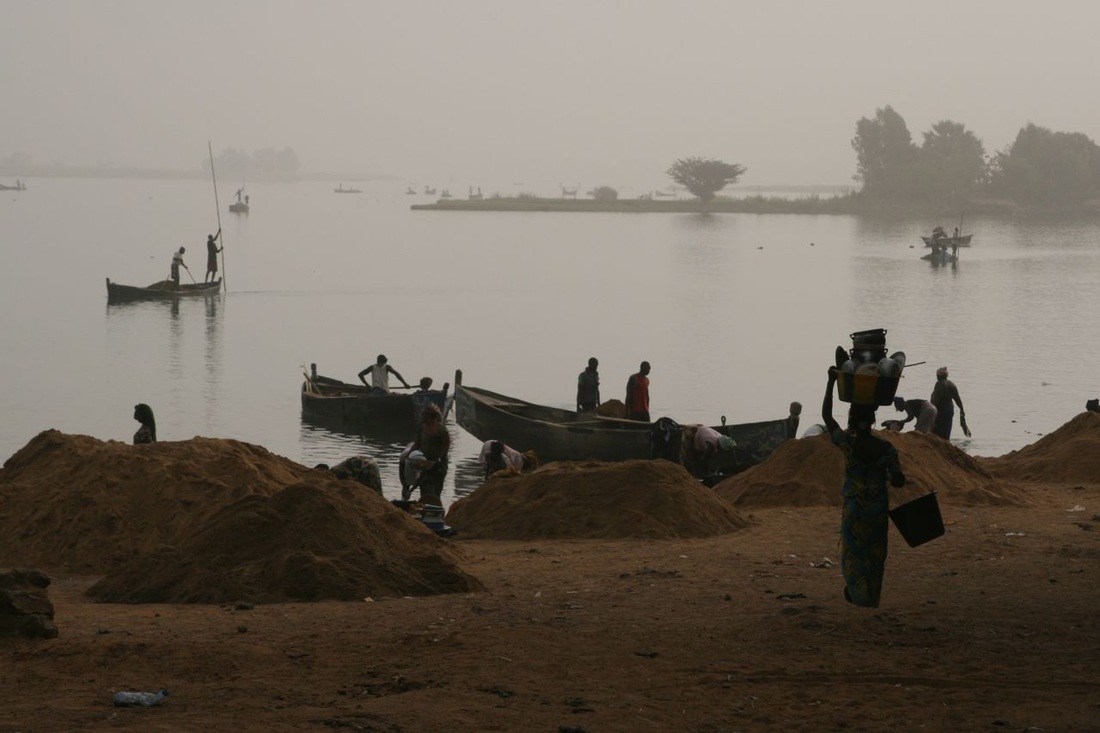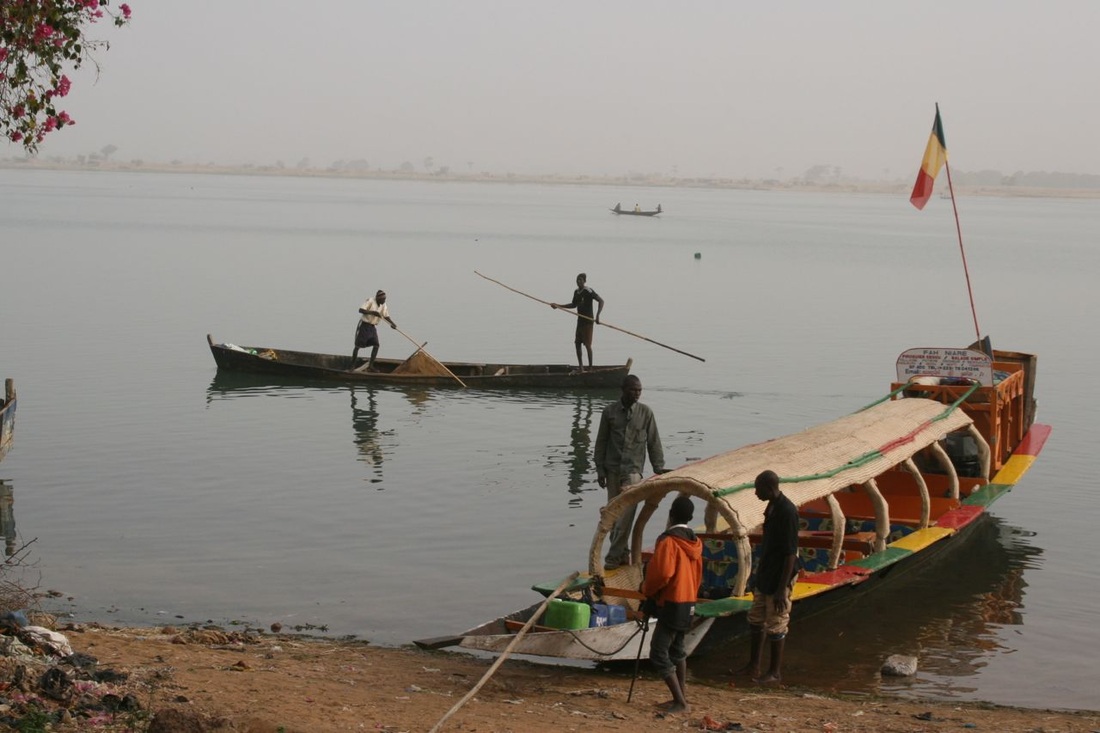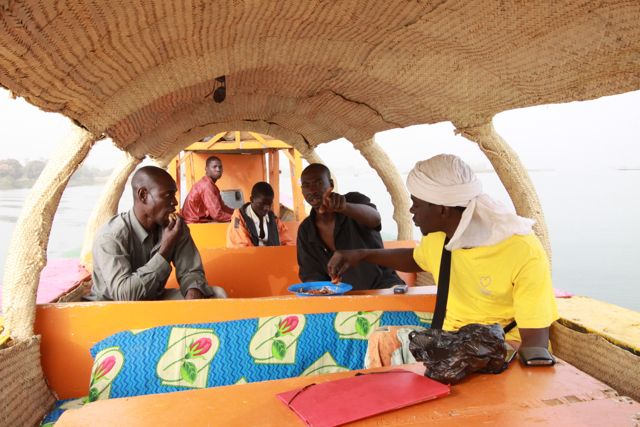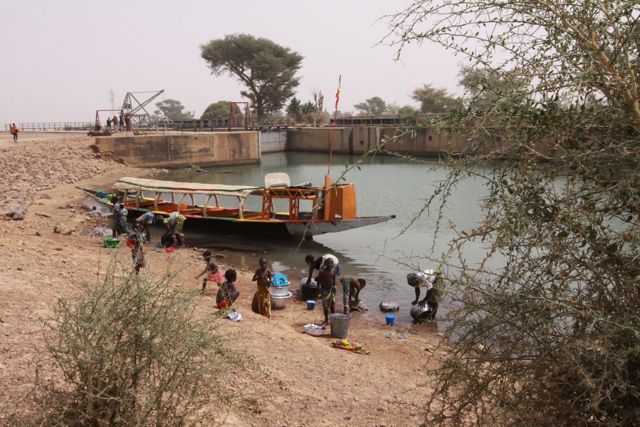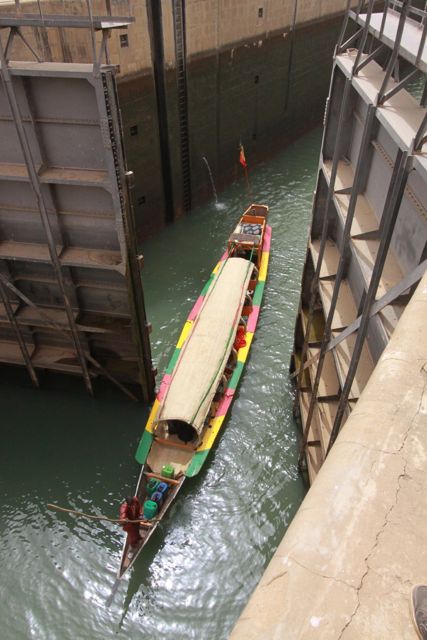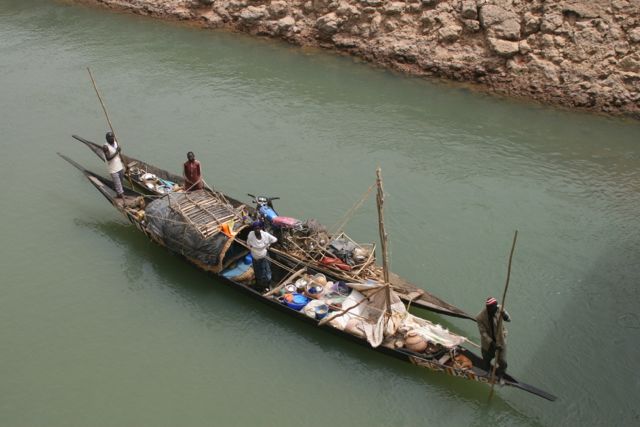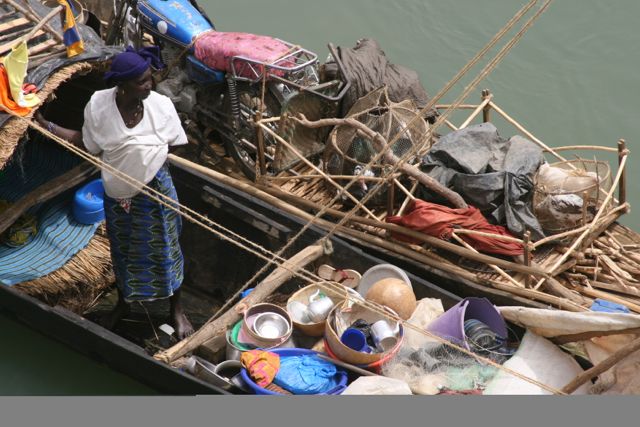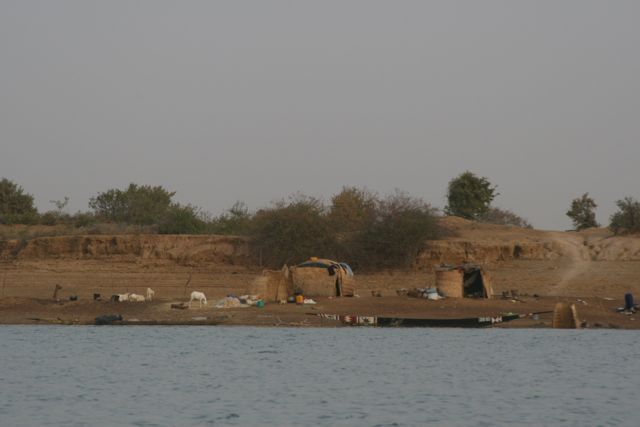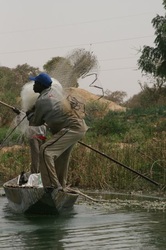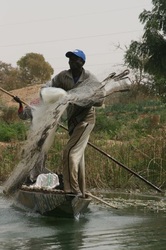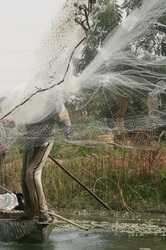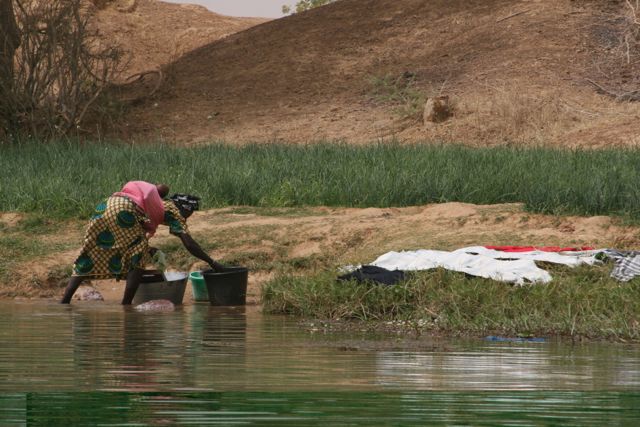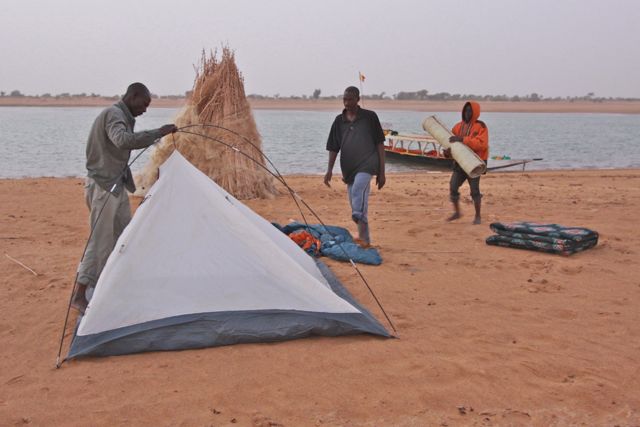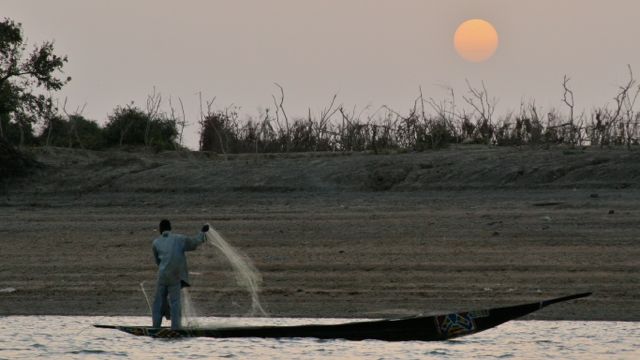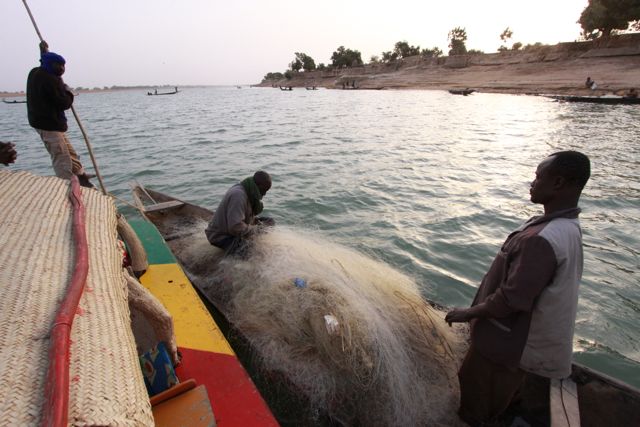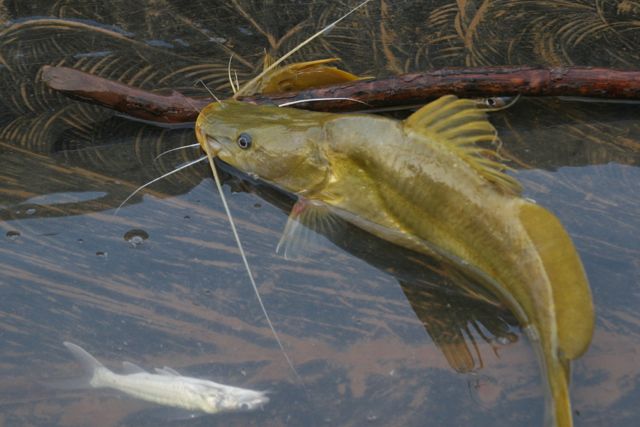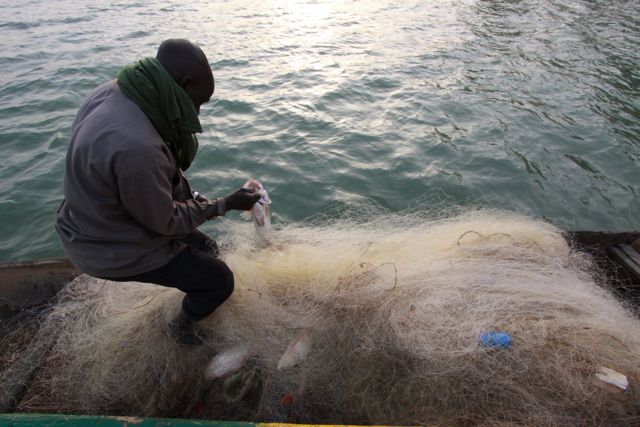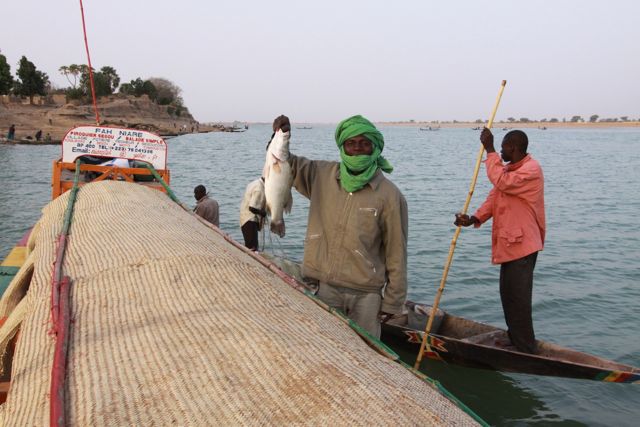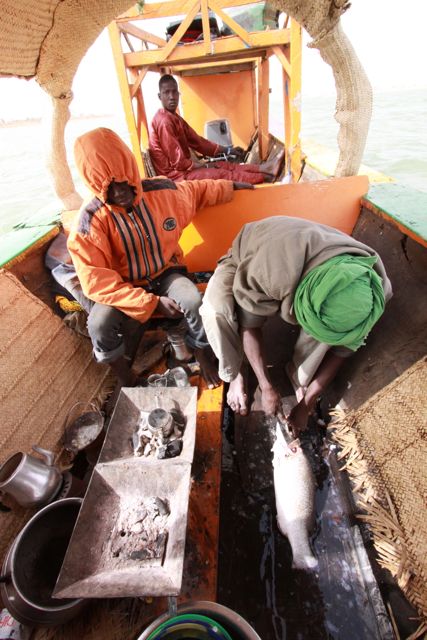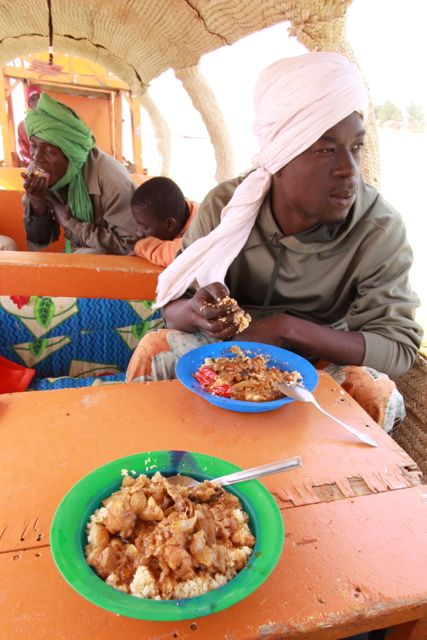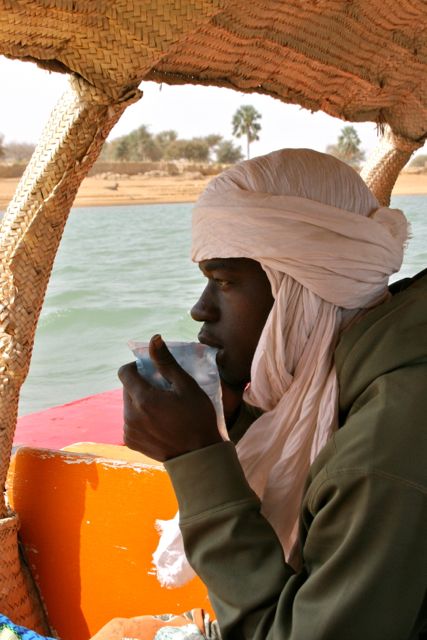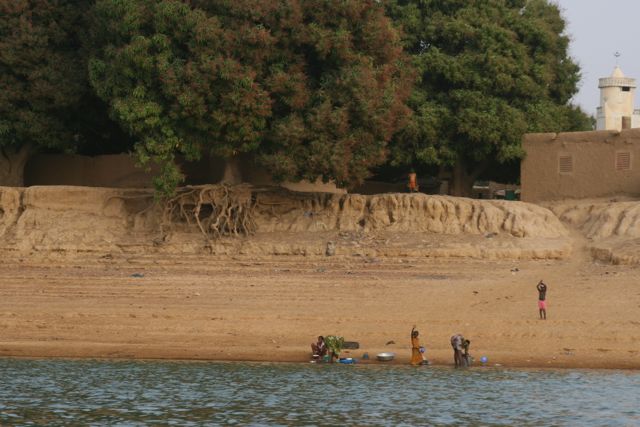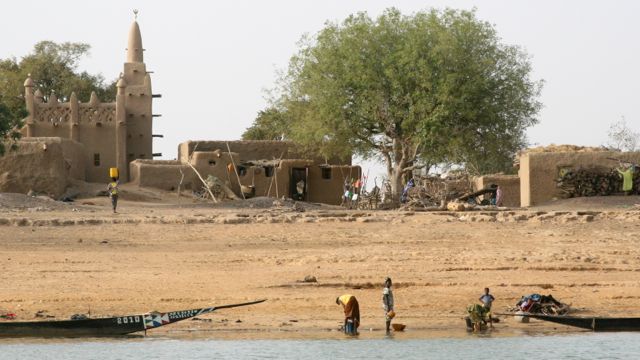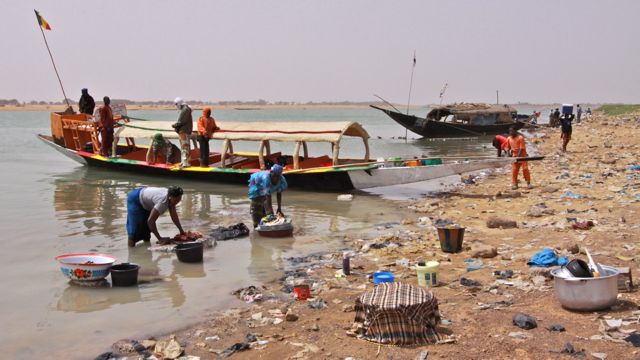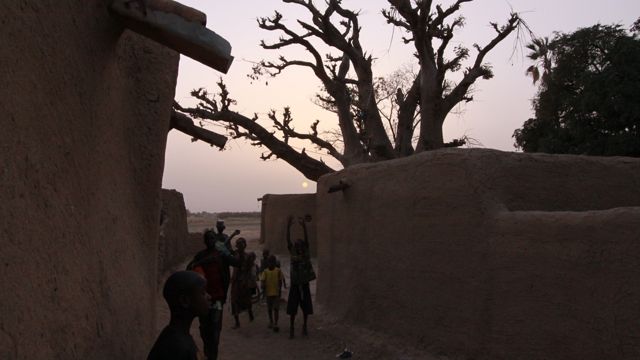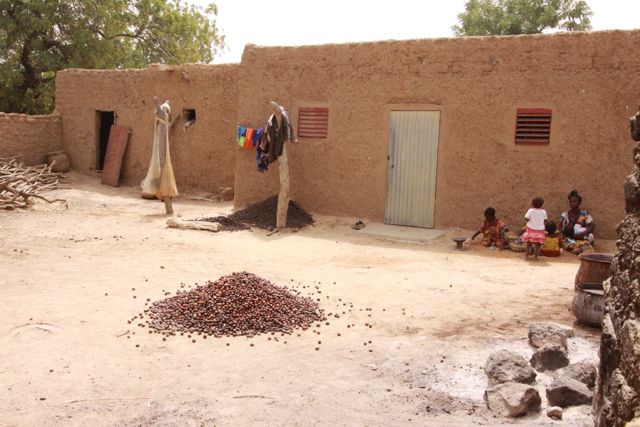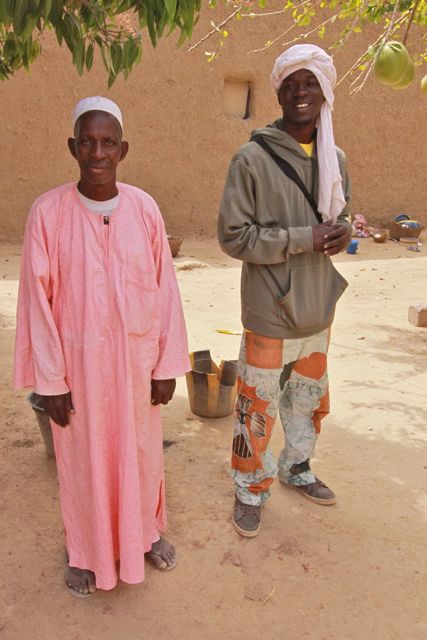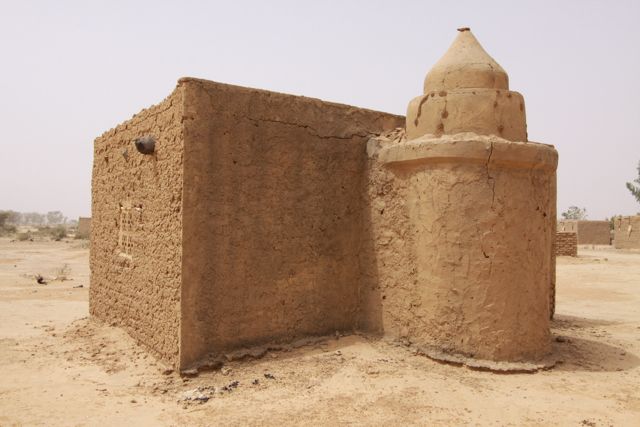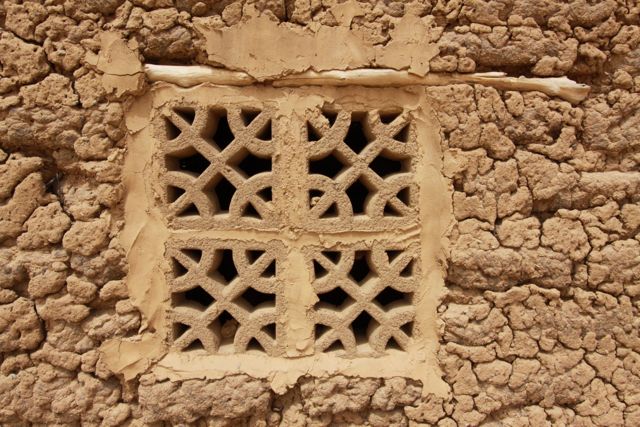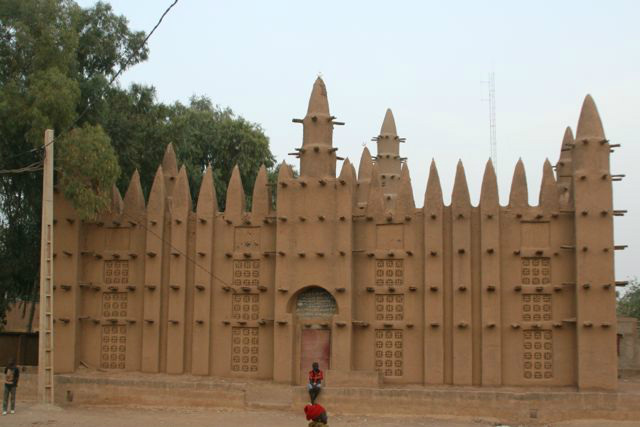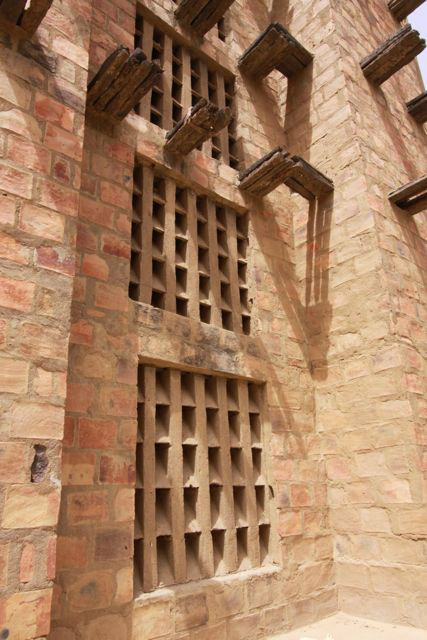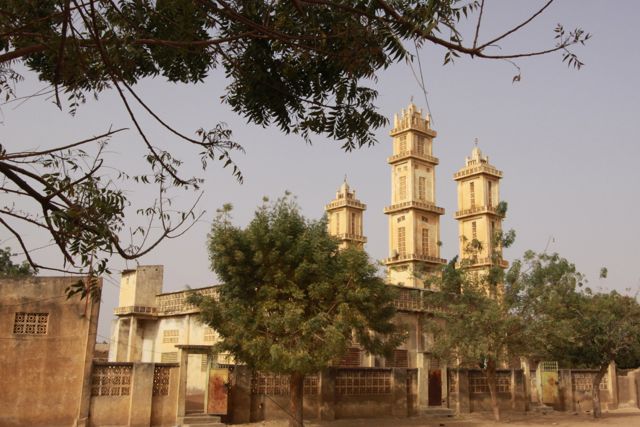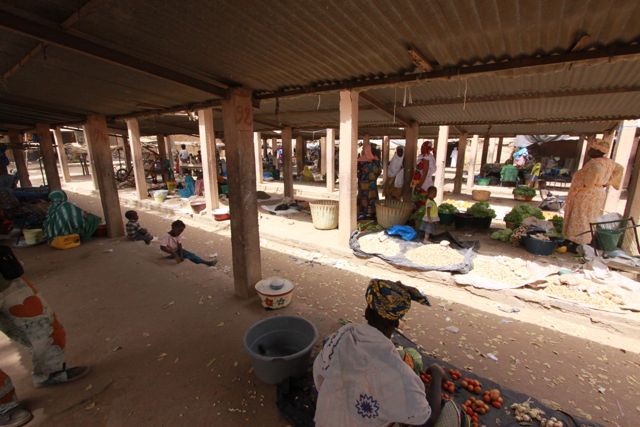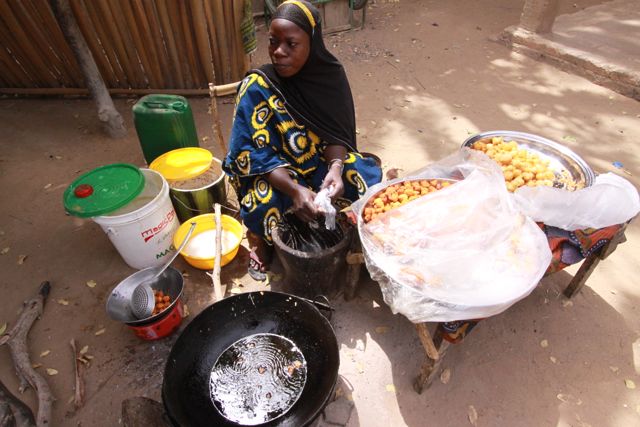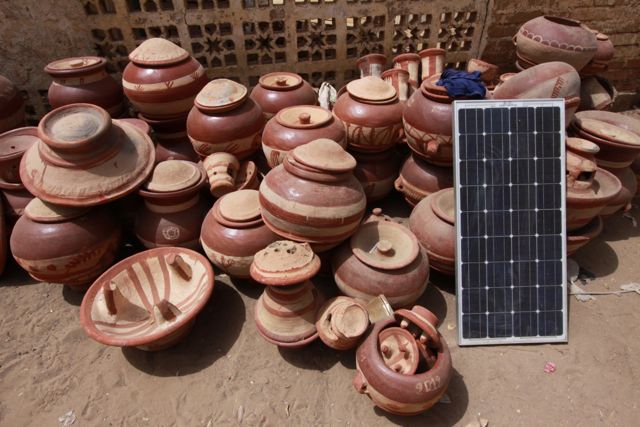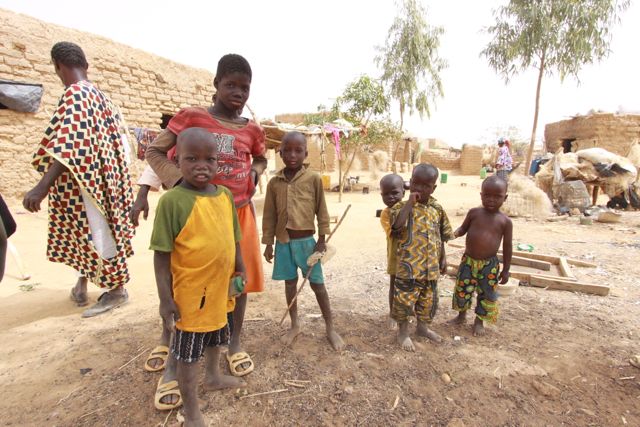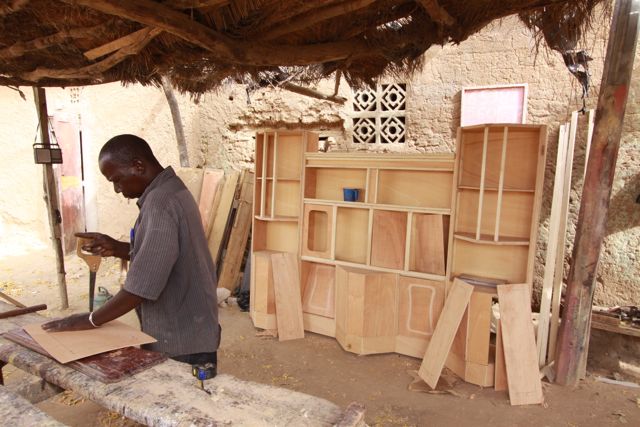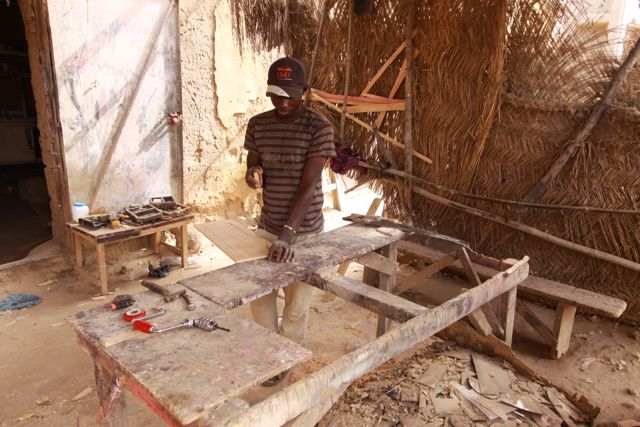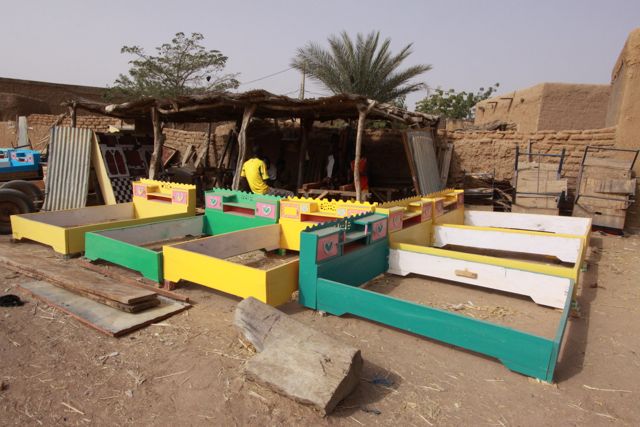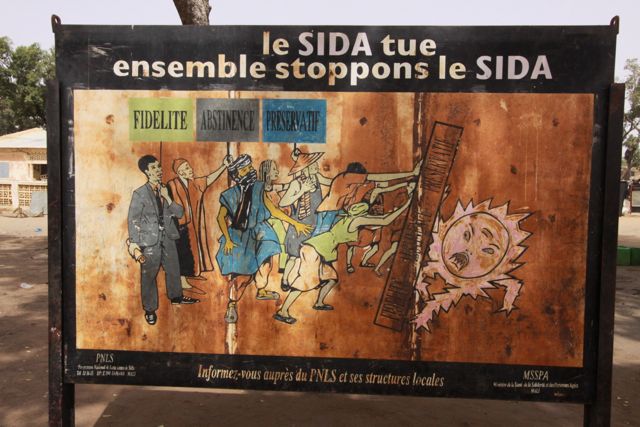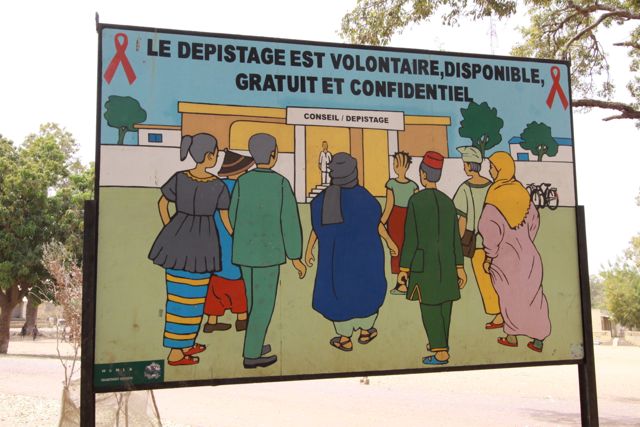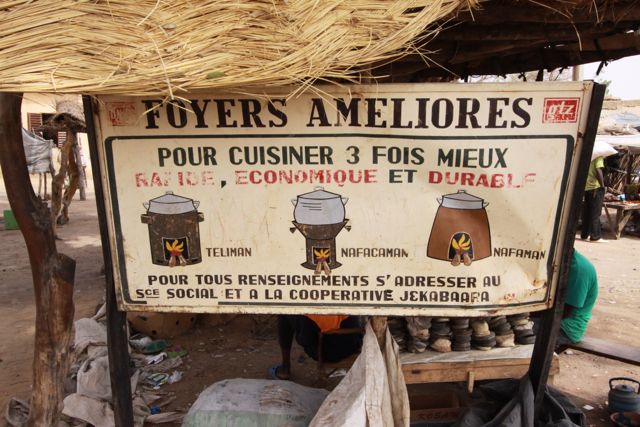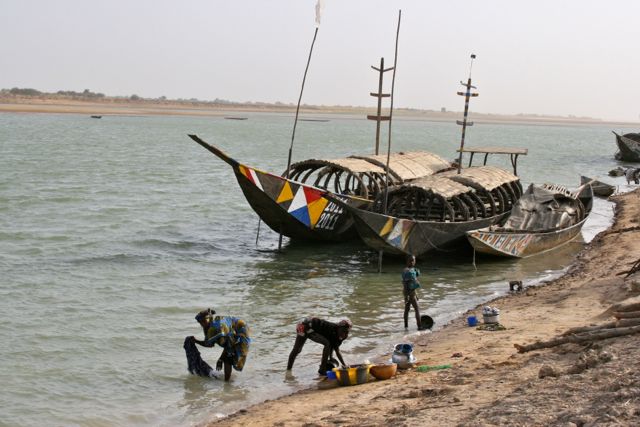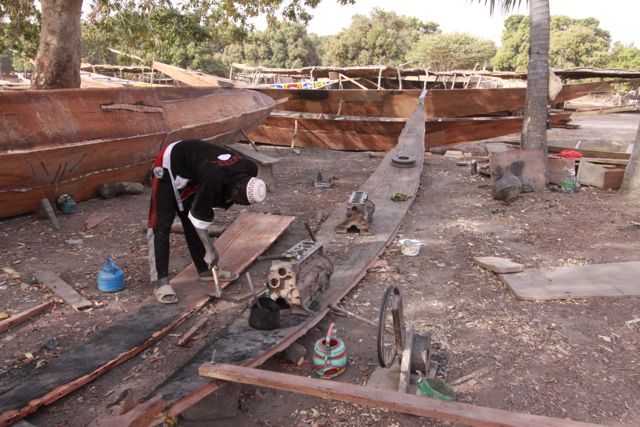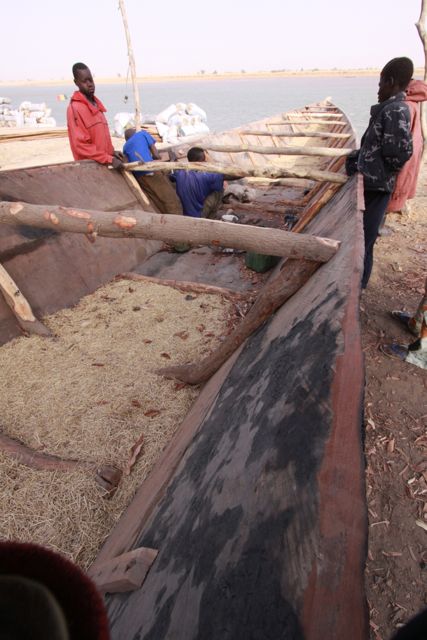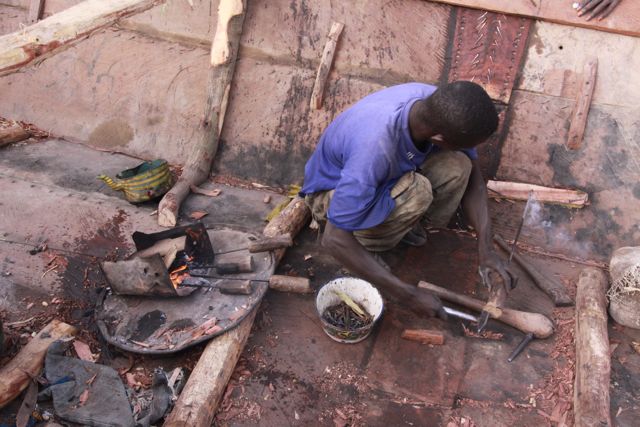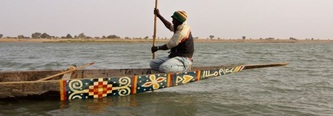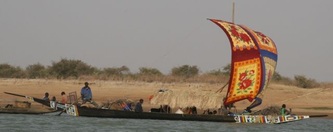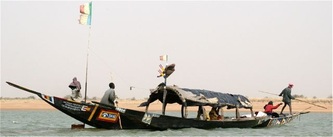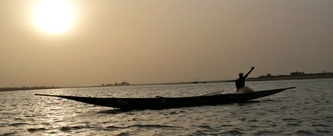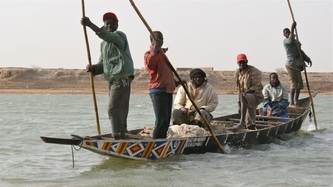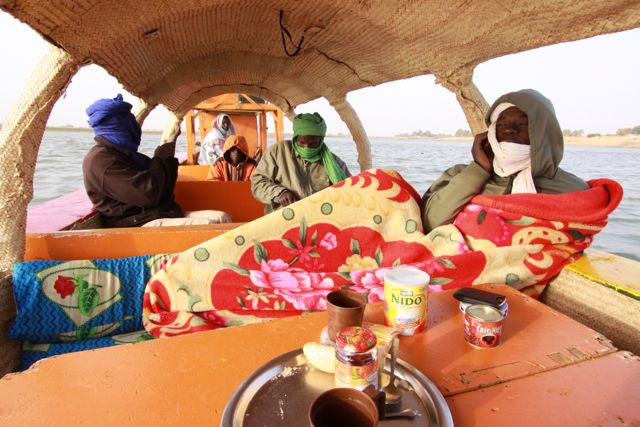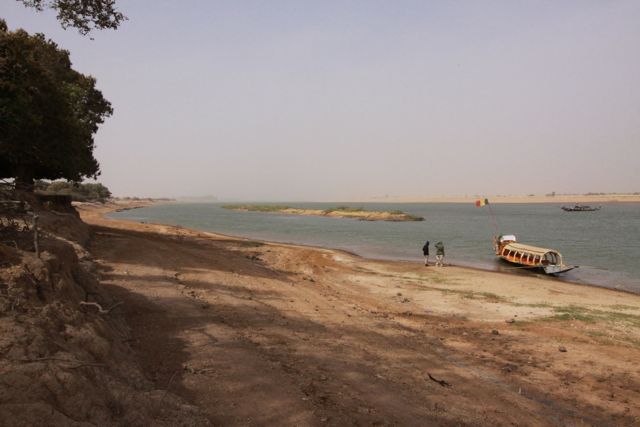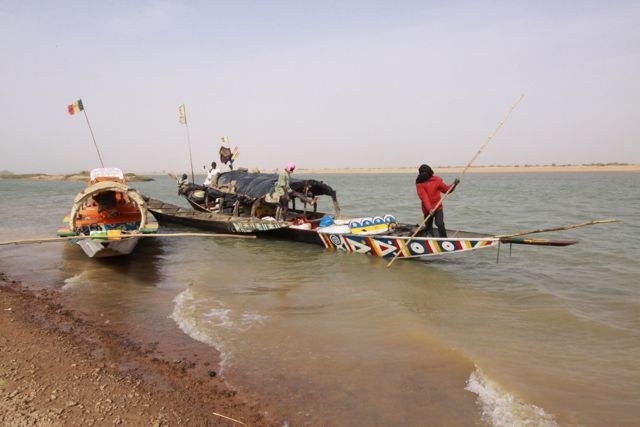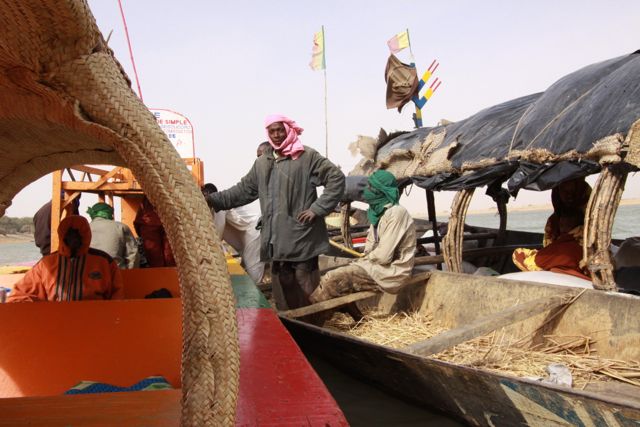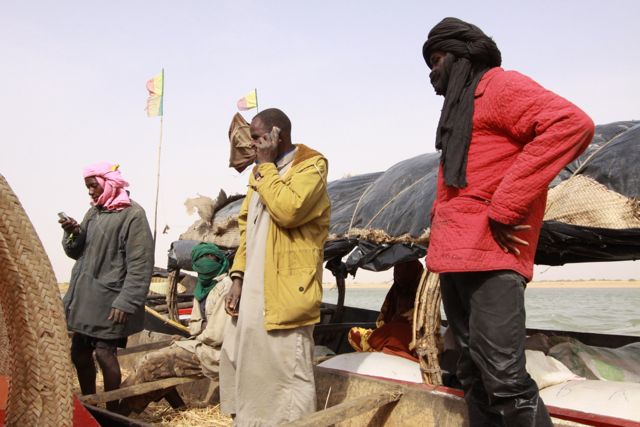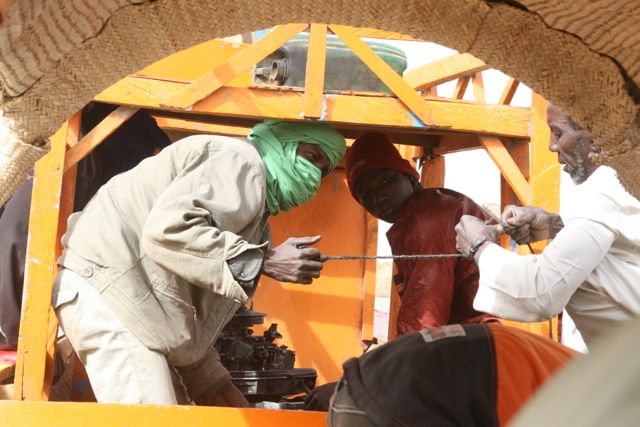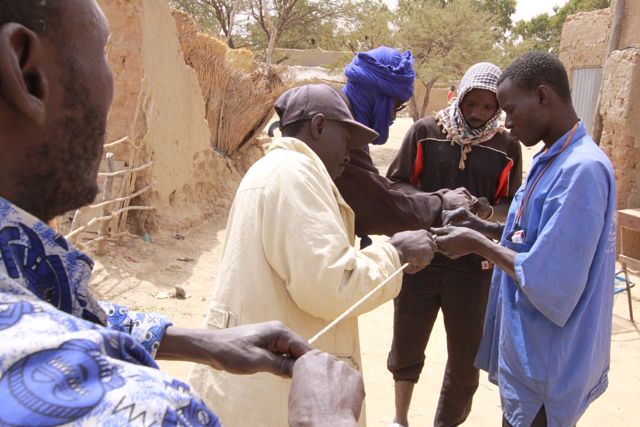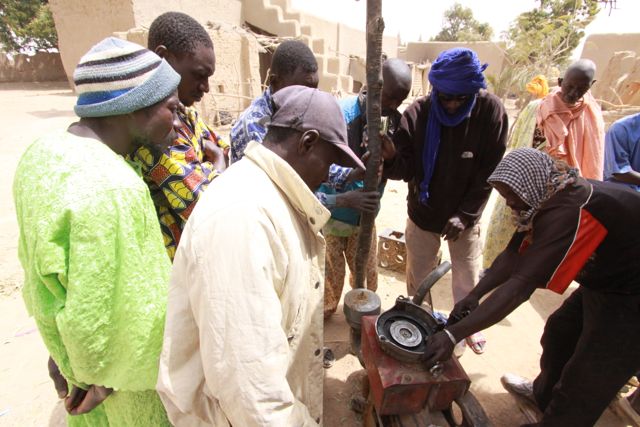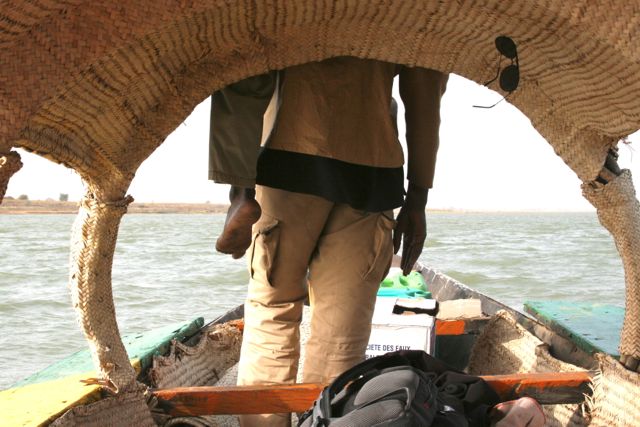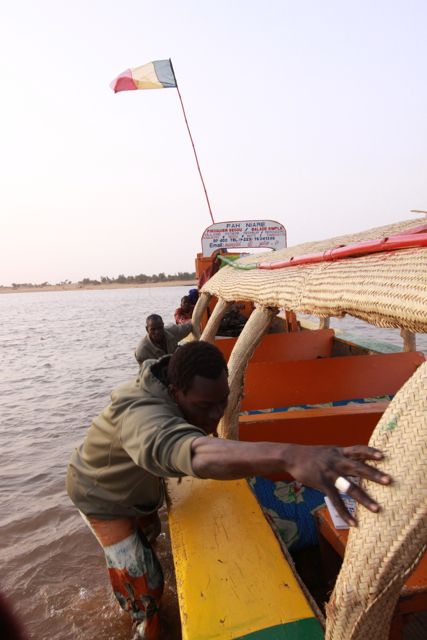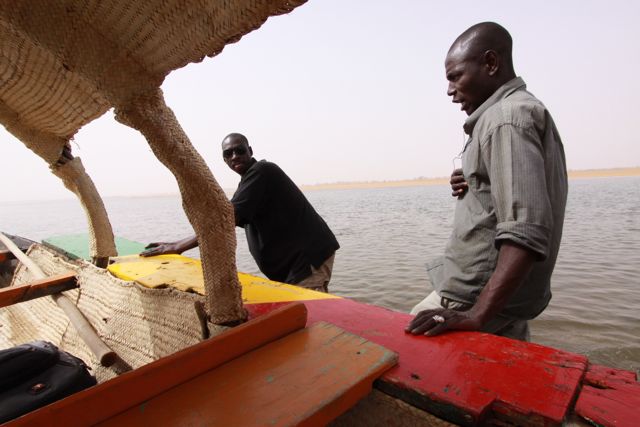The Niger, at 2,600 miles, is the third longest river in Africa, and 14th in the world. It starts west of Mali, goes northeasterly until in the middle of Mali, where it bends southeasterly, and, going through Niger and Nigeria, empties into the Atlantic.
At Segou it is pretty wide, even in low water season, and very active. Women walking down with the morning washing, men at work dredging sand from the river bottom, and unloading it into piles on shore.
Next to the sand piles landed our "pinasse", gaily painted with the colors of the Malian flag, it conspicuously marked her as a tourist boat, not a sand dredger.
The crew was four: left front, the captian; next to him, pointing the way, the first mate; behind him the boat boy (read "tea boy"), and at the outboard motor, the driver. In the foreground, with white turban - and Blackberry in its case - Ibrahim, my personal guide for the next 12 days.
Soon down river from Segou is the Markala Dam, and its adjacent canal and lock. This is the 1930's water works the French built to commence irrigation of an ancient river bed, and which David'd project is a continuation thereof.
With river about as low as it gets, this 40' drop is about as long as it gets.
A couple of pirogues heading up river are a bit more loaded than we are and ...
...I think one of those pots or calabashes qualifies as the kitchen sink.
Remember the wooden posts and mats for sale in Segou? Here they are providing temporary shelter for Bozo fishing families. When the rains come and the river rises, the families will move further and further away until they reach their permanent houses above the high water line.
And of course the women, with babies on their backs, bring the laundry down to the river edge, wherever it is.
For two days we motored down stream when we would erect our temporary shelters at the river edge. The crew set up mine, then laid their mats down in the boat. Ibrahim had a self erecting one: pulled a string and up it popped.
We would be up and underway by sunrise, but the fishermen were already at work.
Good time to call out and see what was available for lunch.
This one was not a contender, but was certainly worth a photo.
When a deal was struck, the fish would be carefully untangled from the net...
...and brought on board by the captain.
He was also the fish cleaner and cook. The tea boy assisted by making the rice, or couscous, or spaghetti (the three choices most common for lunch and dinner) and, of course kept water boiling in the tea-pot nestled in among the charcoal.
This was a fish-in-sauce-over-rice lunch. The common custom is to eat (right hand only) tho spoons were offered to me and Ibrahim.
They had a case of bottled "mineral" water for me, while the crew drank sachettes of water, if they ever wanted a change from tea. Ibrahim caution me to stick to the bottled.
The three days were spent passing villages. This one an example of how the river rises and erodes and takes away trees, then buildings, so the "permanent" villages may not be so.
Or sometimes we would stop to go "tour" as Ibrahim would say. "Shall we go tour in this village? It has interesting mosque!"
We'd find a spot between washing women, and other boats, and pull into shore.
Although white folk getting out to "tour" must not be uncommon, it seemed from the children who scampered about that it had not happened in years.
Ibrahim, having led tourists for years along these banks, was a well known person. He would announce our arrival, step in, and snooze with anyone there.
Some mosques were petit in nature, with a pronounced mihrab, the niche which in on the wall which faces Mecca.
Windows, in keeping with the rest of the building, are rather basic.
And some mosques are much larger.
One or two are upgrading their exteriors by applying a layer of fired tiles, which protect the adobe parging from the annual rainy season.
And some are going over to concrete frame and concrete block, and larger and taller towers.
Of course we would encounter markets...
...with fast food sellers....
...or pottery for sale. In this case one could also get your cellphone charged thanks to the solar panel.
We would turn a corner, and kids would come to a stop, yelling "Toubab!!", the Mali equivalent of Japan's "gaijin"!
It took me back to when it was prevalent there, along with accompanying high "stare-factor".
It took me back to when it was prevalent there, along with accompanying high "stare-factor".
Along the streets various craftsmen carried on their trade....
...and passed it on to their apprentices.
And they would place finished product out front, hoping for a sale.
The government was also advertising along the streets: AIDS prevention and ...
...testing.
Commercial advertising was sparse: this one is selling wood fired cooking stoves.
One village was a pirogue/pinasse making town.
The inboard engine blocks are being use as weights to assist in bending the bottom which is made of scarf jointed boards. The builder is preparing a scarf on the edge of the next board.
With the bottom formed, sides are attached, and braced along the tops.
Where nails are needed, red-hot glowing pointed iron pieces are hammered, boring and burning its way through the wood. Nails are inserted and then bent over: notice the columns of them just behind the man's he'd. Lots of bored holes and nails.
Here are a few of the many boats seen:
Meanwhile back on board our boat, the weather has turned chilly, maybe even as cold as the high 70's; The crew is all bundled up, even I had every layer I brought on, as we got under way with breakfast being served: Nescafe (the Malian word for "coffee"), French bread, jam and Laughing Cow cheese.
The motor encountered some difficulty, requiring many re-starts with the pull-cord. Until it broke. We poled over to shore, and, who you gonna' call for river-side assistance?
Waving of arms, and shouts across the waters, attracted the attention of this large pirogue, which had a smaller one in tow.
Much discussion ensued and efforts to repair the motor, and the pull-cord followed, while the woman with two small children, waited patiently in the pirogue.
Phone calls were placed, maybe keeping others informed of the situation and the pirogue's delay?
The motor was fixed, and the cord given a makeshift knot, enough to get us to the next village.
Where the local hardware and motor-scooter sales and repair shop braided a new cord from nylon string.
The cord was attached to the motor top assembly and tested, with lots of curius bystanders watching on.
Underway again, a difficulty which has been occasionally affecting us, became a frequent one: going aground on sand-bars in the middle of the river. At one point the captain and the first mate both were on pilot duty....
And often it was all hands over board to push, pull, shove, whatever it took to free the craft. As much as I wanted to assist, I was asked not to jump in...just sit in the middle and help keep the boat on an even keel. I guess they did not want anything to happen to their paying guest.
And even in times of push-me pull-me, cell phone conversations would occur. The company had another boat in the area and they were keeping each other appraised of their situations.
And so the third day ended with about three hours of making our way over sand-bars, finding deeper water and motoring in the deepening dark until we reached our destination, Mopti.
